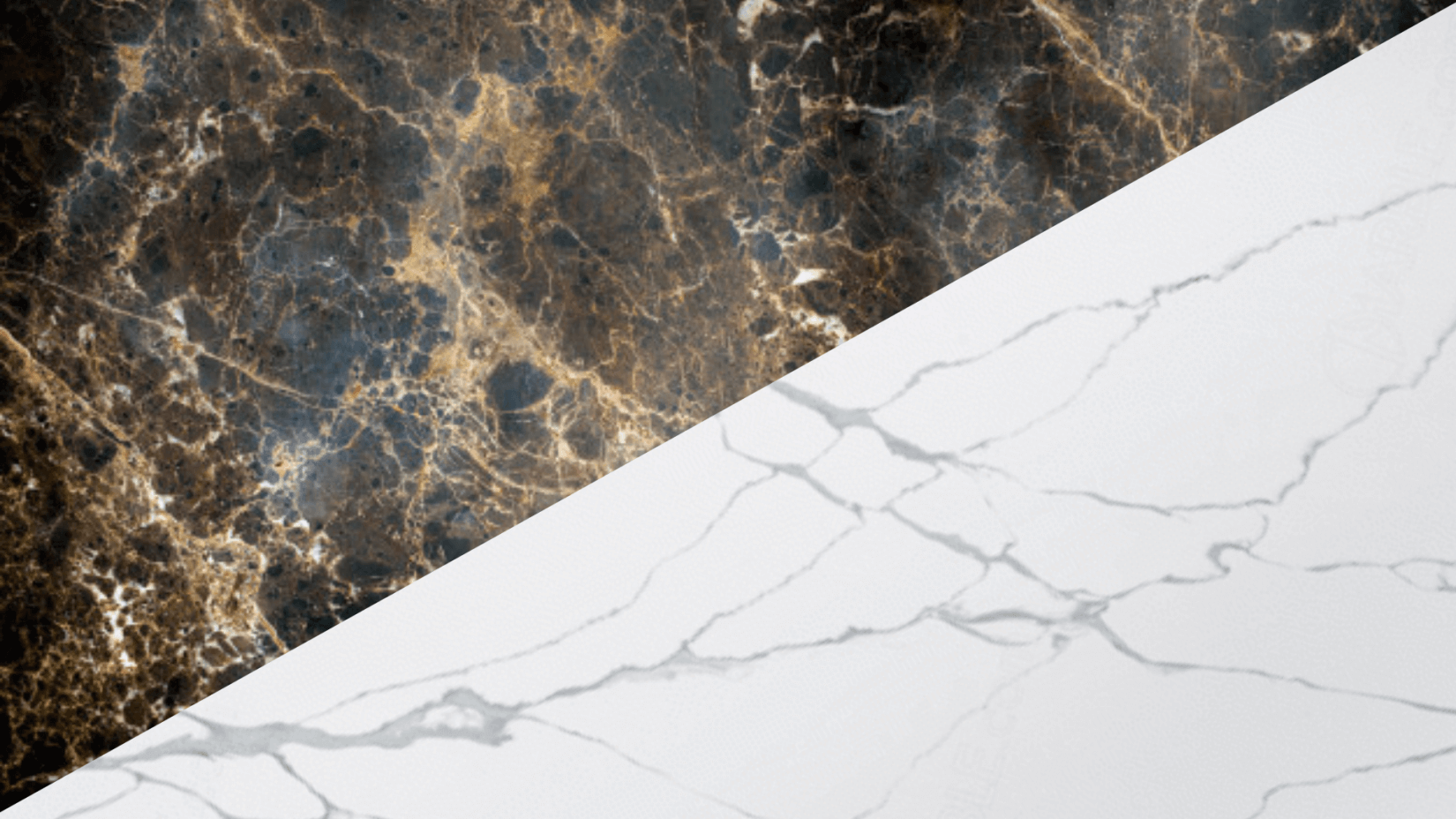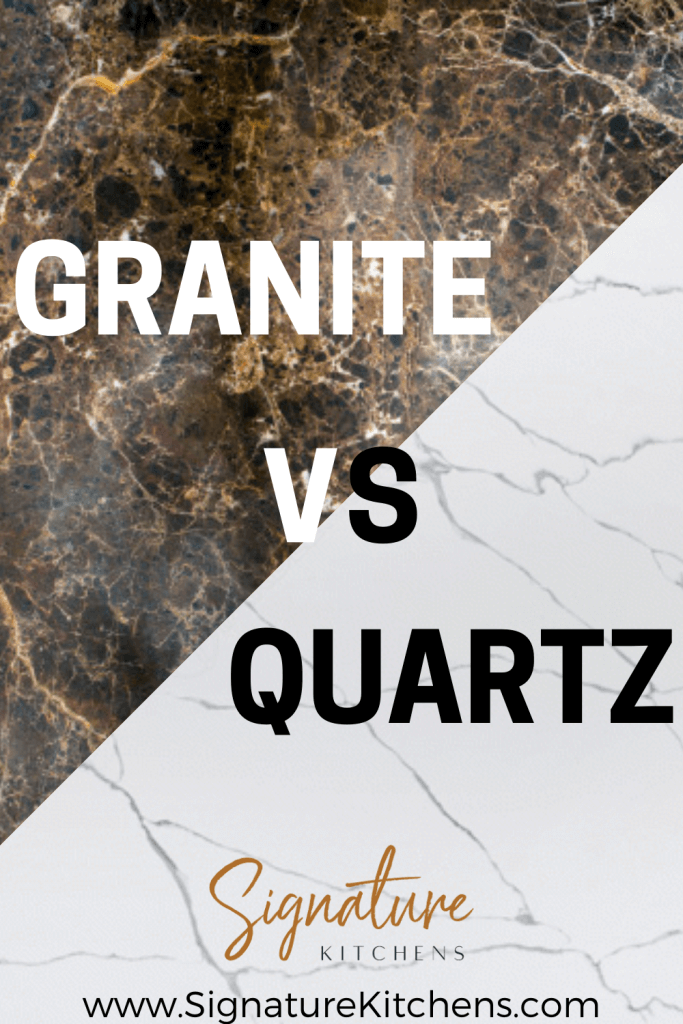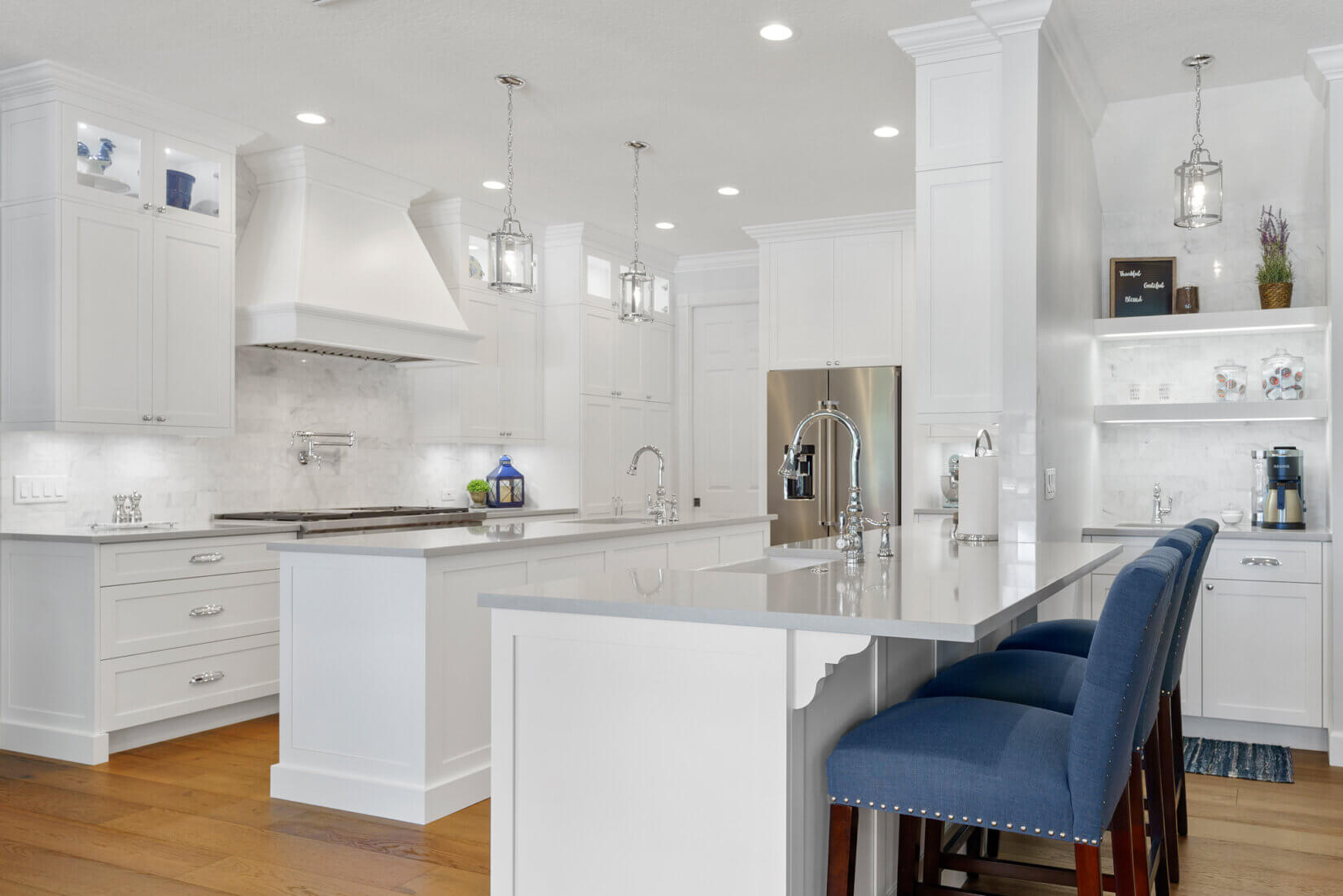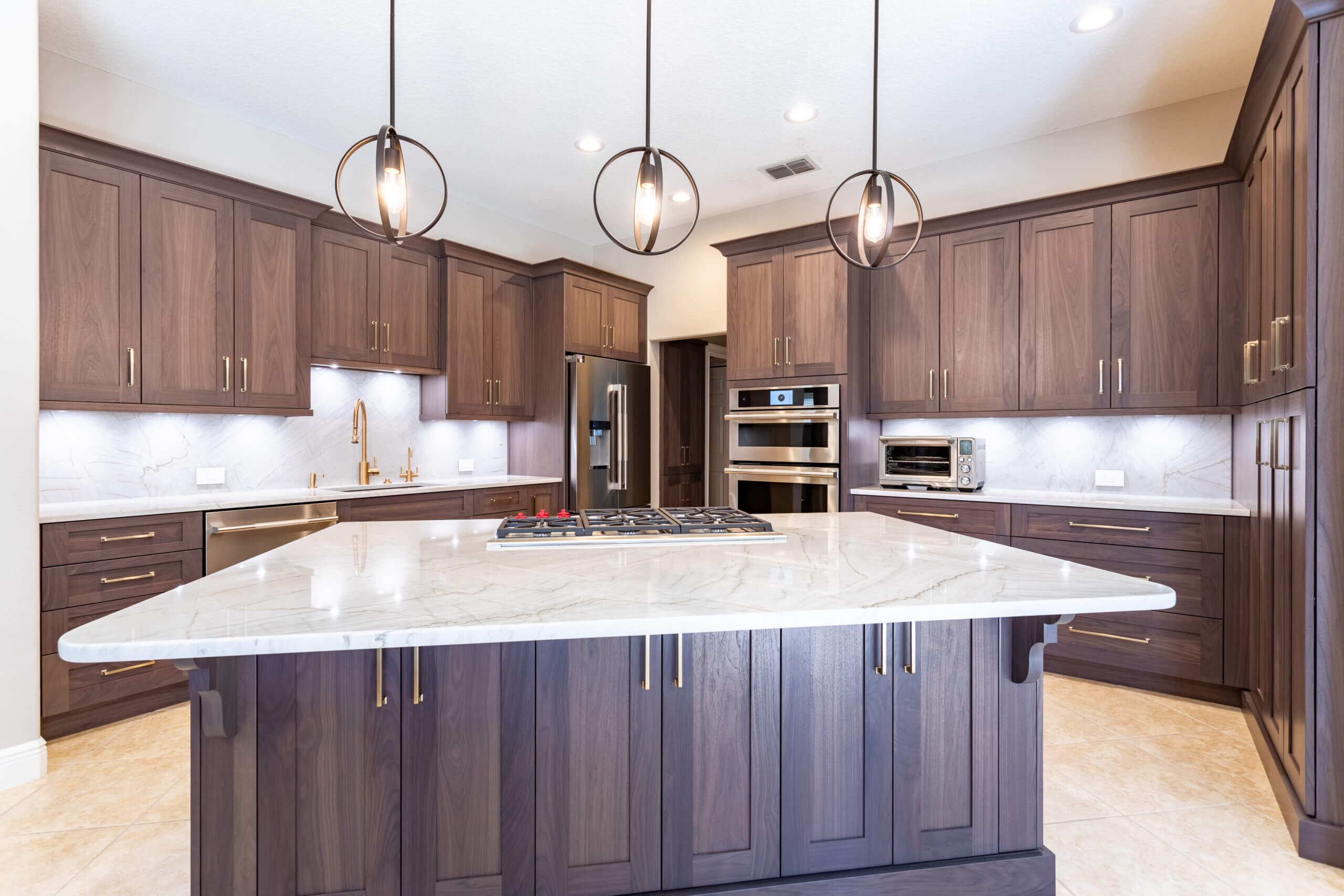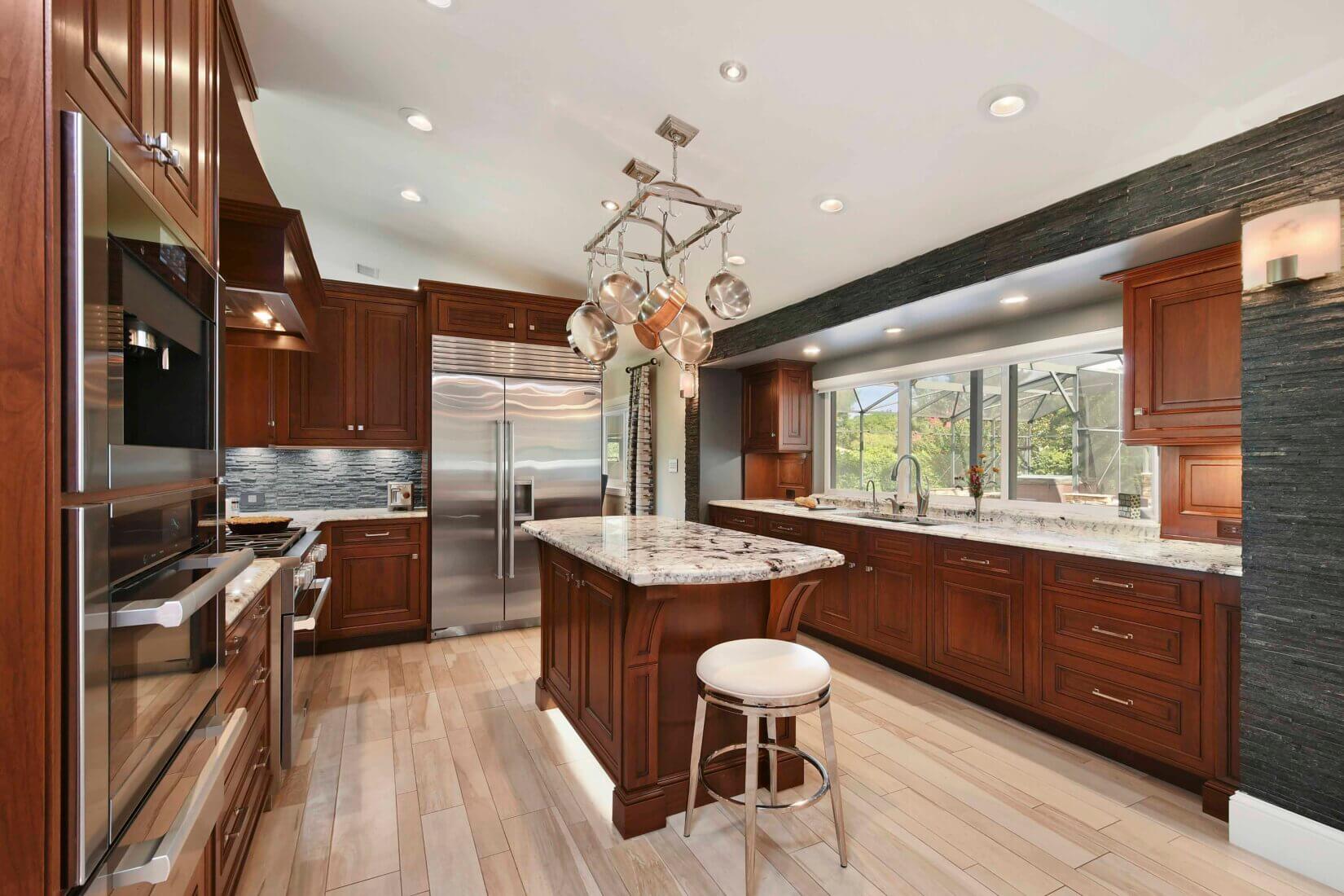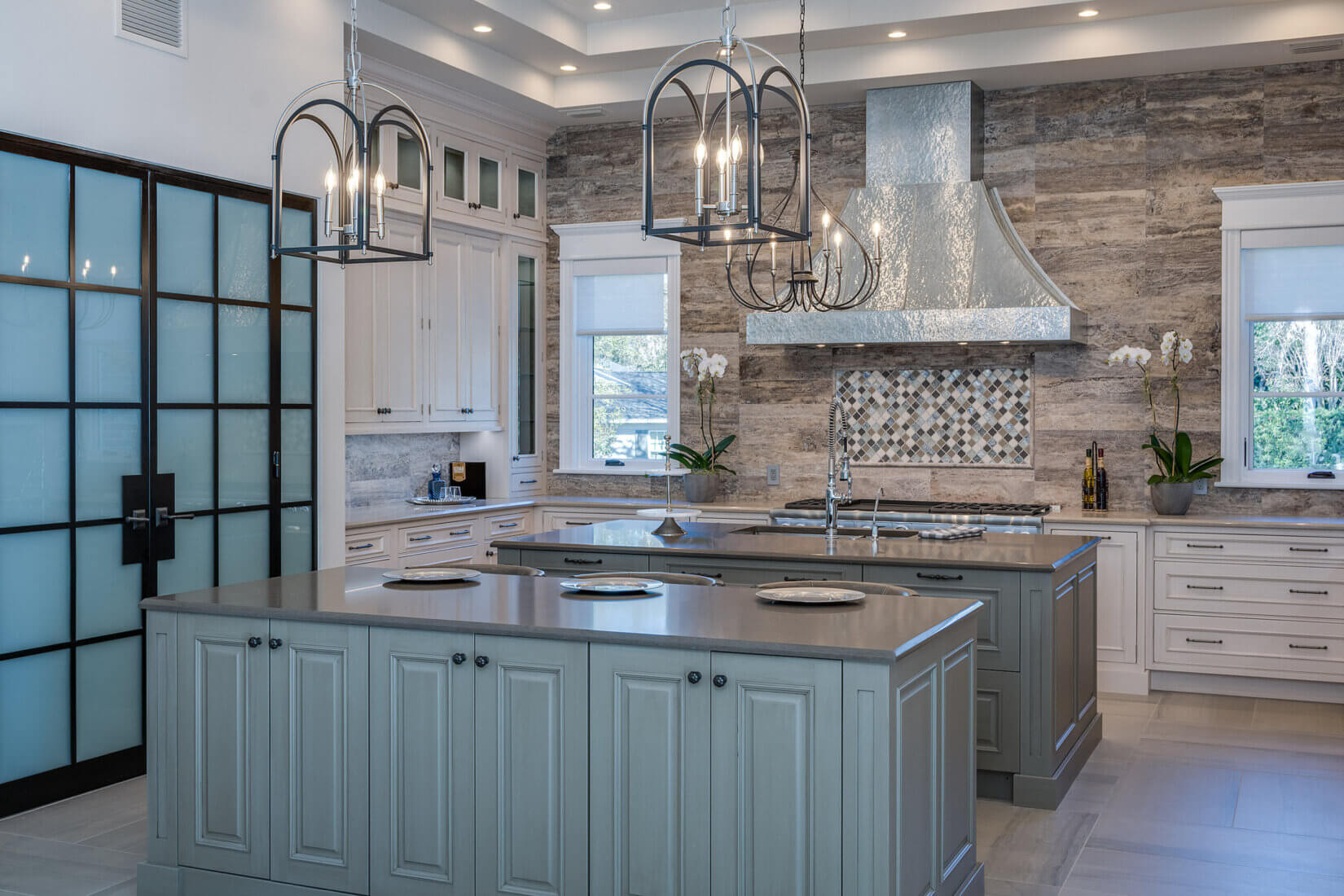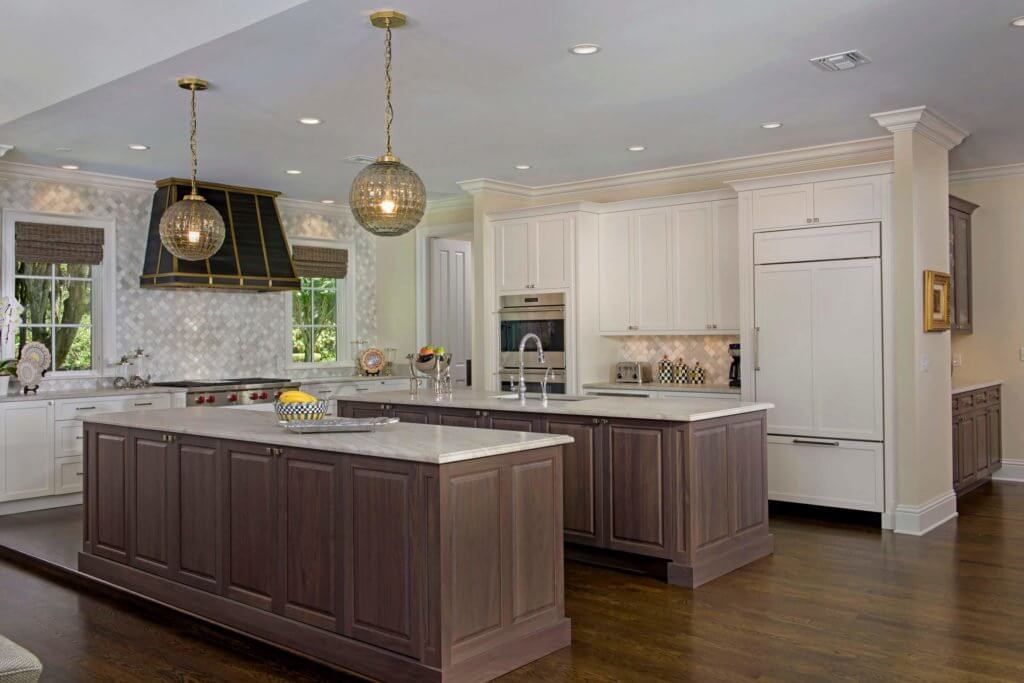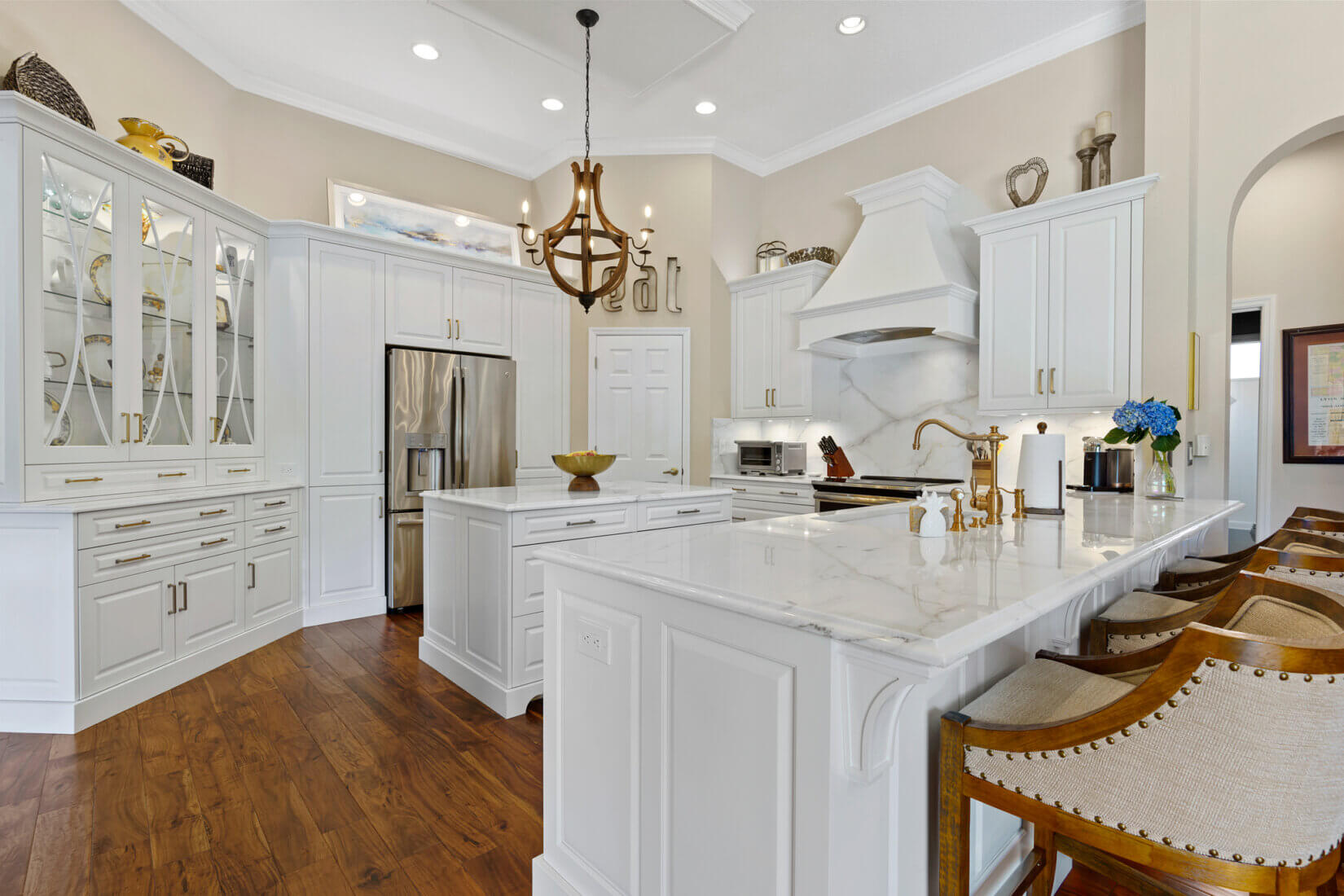Granite vs Quartz: What do they cost?
Kitchen countertops are not cheap, and for many homeowners nowadays cost is one of the biggest concerns understandably, so it is very important to look at the relative cost of different materials that you’re choosing from.
When it comes to cost, both granite and quartz are considered to be competitive as neither one costs as much as some materials like onyx. The exact variety and grade of quartz or granite that you purchase will dictate the exact cost of the material with wide differences in cost in both materials.
Generally speaking, however, in the Orlando, Florida you can expect to purchase a common variety of granite for between $40 and $85 per square foot with the more expensive varieties reaching upwards of between $60 and $100. Exotic granites do exist and those can cost several tens of thousands per slab.
The price of quartz in Orlando, Florida can range between $28 to $100 per square foot depending on the grade of quartz chosen with First choice Quartz costing between $70 and $100 per square foot.
We aren’t taking into consideration the exotic varieties of granite which can cost tens of thousands per slab, but generally speaking the cost of granite countertops is going to be lower than quartz.
So, if your overall goal is to reduce costs by as much as possible, opting for a cheaper grade of quartz is probably the better option for you, but the overall difference between the two materials is extremely minimal in terms of cost.
Granite vs Quartz: Which is More Heat Resistant?
Heat Resistant is a very important concern because the kitchen is an area of the house that experiences very hot temperatures due to various cooking methods. So, one of the most important concerns for homeowners is to adopt a material that is heat resistant enough to meet their specific kitchen needs.
Both quartz and granite are very heat-resistant materials in general but when it comes to kitchen countertops made of either material, both quartz and granite can be very easily damaged if exposed to high temperatures. The reason for this is that quartz contains binding agents such as resin that can be damaged by heat whereas granite can experience heat damage in the form of its sealant being burned or damaged since it is not typically heat resistant.
You cannot place a hot pot or pan on either material without the use of a trivet since both surfaces will be damaged through direct exposure to hot pots and pans. Overall, both materials perform the same with respect to heat resistance and neither one really has an advantage over the other.
If heat resistance is a very major concern for you, you can be sure that both granite and quartz perform relatively well when it comes to mitigating heat damage, but neither one has a competitive advantage above the other with respect to heat resistance.
Granite vs Quartz: Weaknesses
Both Quartz and Granite are very durable materials that are known for being long-lasting and difficult to damage. Nevertheless, neither material is fully indestructible so each one has its own weaknesses.
Granite and Quartz can both be damaged by exposure to high temperatures since some of the elements contained within each one is susceptible to being damaged by intense heat.
Granite is porous while quartz is not, so granite can suffer from spills and stains while quartz is more stain resistant. Both are, however, vulnerable to abrasive cleaners such as ammonia, Windex, vinegar, and bleach.
Quartz has the advantage of not being nearly as susceptible to being stained as granite is, but for the most part, the weaknesses of both materials are extremely similar, add both have a similar degree of durability. So overall, the differences between quartz and granite in terms of their weaknesses are insignificant enough to not be a major factor in impacting your decision.
Granite vs Quartz: Maintenance
Maintenance cost and effort is another absolutely vital concern for any homeowner since you will naturally want your countertop to look as good twenty years from now how it looks today. In that quartz has a clear advantage over granite since the former virtually has no maintenance costs while the latter does.
Both materials are vulnerable to common household abrasive cleaners, so neither can be cleaned using bleach, ammonia, Windex, or vinegar. As such, both materials can be cleaned using only a damp cloth and some warm water. The cleaning process is, therefore, the same for both of these materials.
Granite needs to be re-sealed annually which incurs a maintenance cost, while quartz does not require any maintenance at all since it is a non-porous material and does not require re-sealing or any other maintenance costs.
It can therefore be seen that with respect to maintenance, quartz has an absolute advantage over granite as in almost no circumstances will you need to actually have to invest any money in maintaining your quartz countertop.
If reducing maintenance costs is a major concern for you, as it is for many homeowners, then you would be best served by opting for a quartz countertop since they virtually require no maintenance whatsoever, but you should also know that compared to materials other than quartz, such as marble, granite is considered a relatively low maintenance option, so it is not as if granite requires a very high maintenance expense.
Quartz vs Granite: The Verdict
Both Quartz and Granite have their advantages, with quartz seeming to outperform granite by a number of metrics. Cost is always a major concern and granite is the clear victor there. Both materials rank extremely close on hardness and are very similar in terms of their weaknesses and cleaning needs. The greatest advantage that quartz has though is its lack of need for maintenance and its non porous nature.
